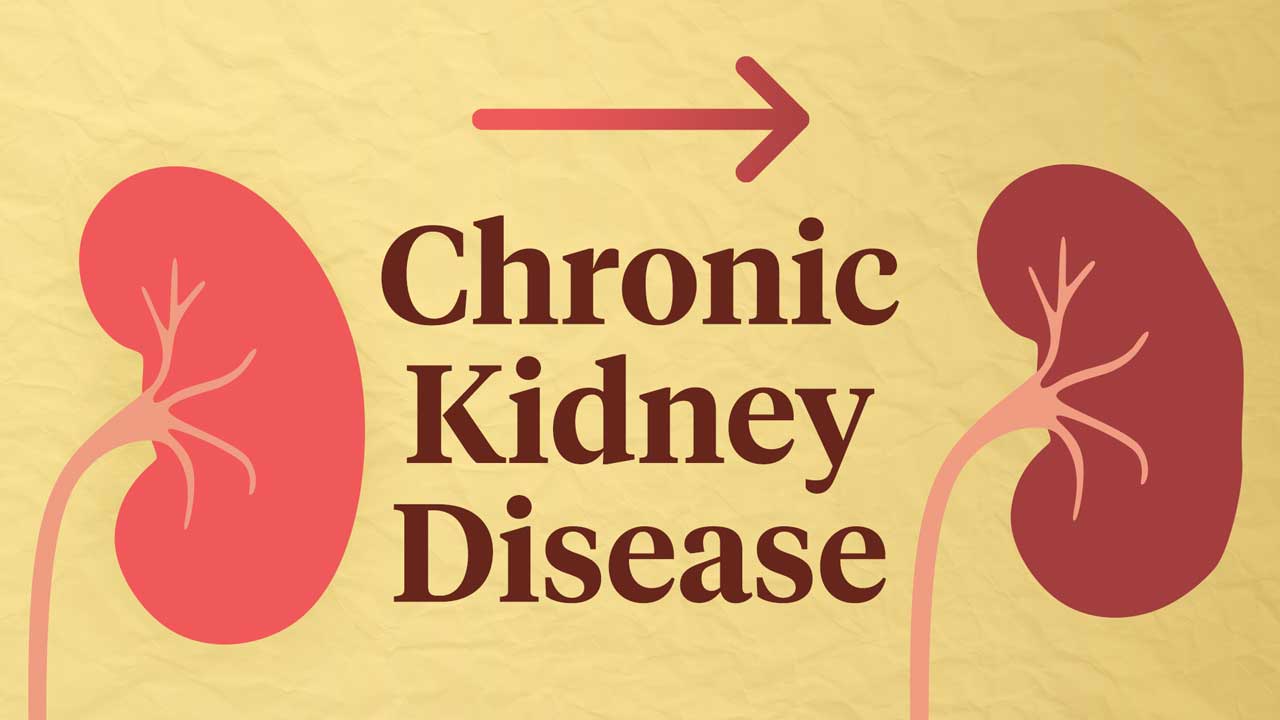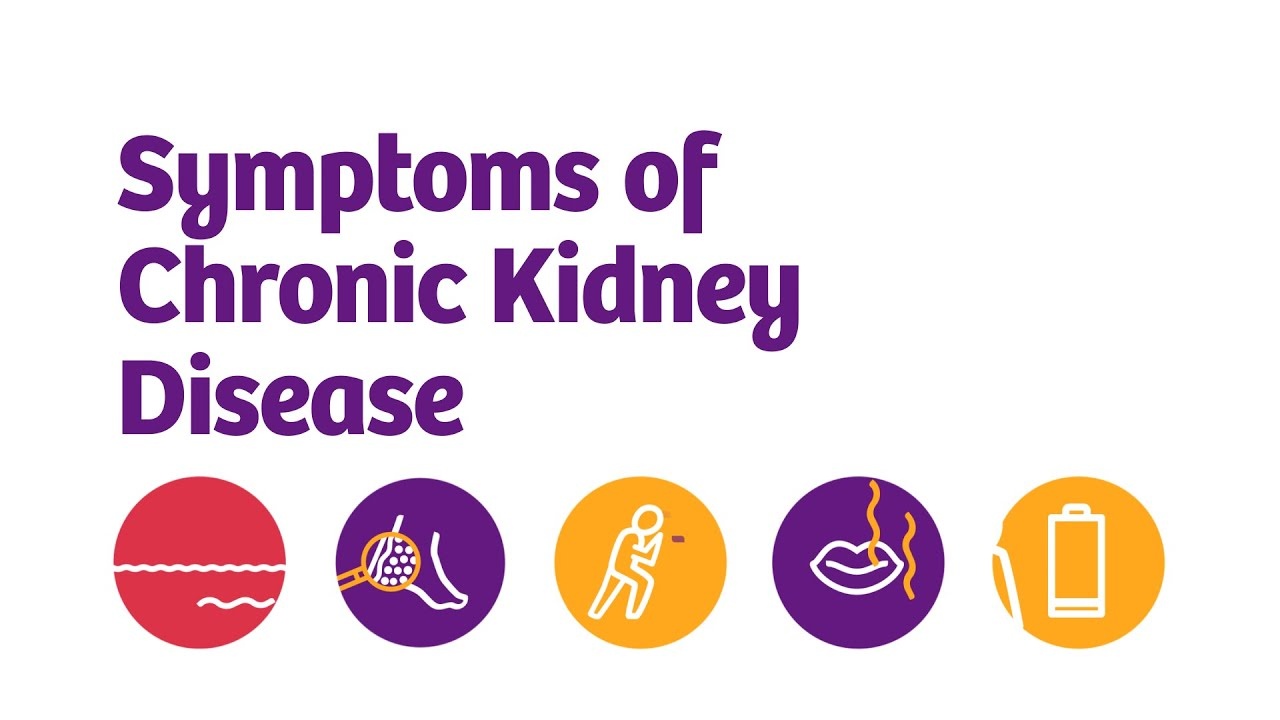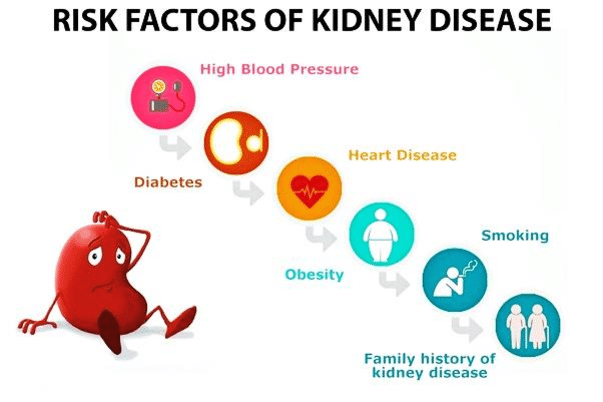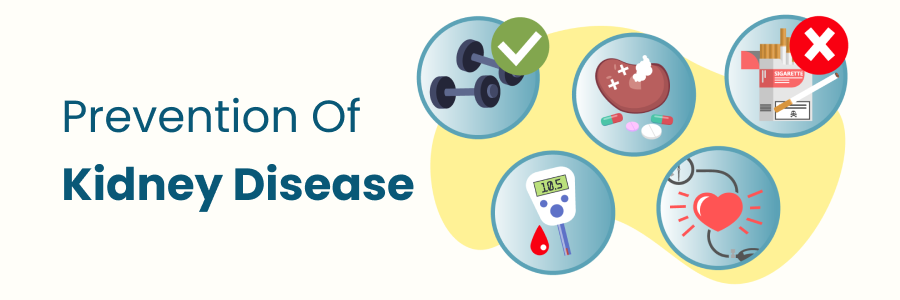What Is The First Main Symptom Of Kidney Damage?
Understanding the first symptom of kidney damage is vital to preserving your health. Let’s dive into the early warning signs you should never ignore.
Author:Suleman ShahReviewer:Han JuDec 22, 202411.3K Shares151.2K Views

Chronic Kidney Disease (CKD) is a serious condition where the kidneys gradually lose their function over time. The kidneys, which are essential organs in filtering waste and excess fluid from the blood, can be damaged by a variety of factors, such as diabetes, high blood pressure, and even inherited kidney diseases.
What Is Chronic Kidney Disease?
Chronic Kidney Disease (CKD) refers to the long-term loss of kidney function, which can progress to kidney failure. When kidney function diminishes, waste products and fluids accumulate in the body, causing complications that affect various organs. CKD is a progressive disease, meaning that it typically worsens over time.
In the early stages, CKD may not show any symptoms, making it harder to detect. However, as kidney function continues to decline, the symptoms become more severe and noticeable.
What Do The Kidneys Do?
Your kidneys, each about the size of a fist, are located just below your ribcage. They are responsible for filtering waste, balancing body fluids, regulating blood pressure, and producing red blood cells. Without properly functioning kidneys, waste and toxins build up in the blood, leading to dangerous complications.
Symptoms Of Chronic Kidney Disease
The signs and symptoms of CKD tend to appear slowly as kidney function deteriorates. In the early stages, you might not notice any symptoms at all. As the disease progresses, the following symptoms may emerge:
- Fatigue and Weakness: Feeling more tired than usual, with less energy.
- Swelling: Swelling around the feet, ankles, or face due to fluid retention.
- Urinary Changes: Either more frequent urination or urinating less than usual.
- Nausea and Vomiting: Digestive problems caused by toxin buildup.
- Sleep Problems: Difficulty staying asleep or feeling unrested.
- Decreased Mental Sharpness: Difficulty concentrating, memory problems, and brain fog.
- Dry, Itchy Skin: Skin problems due to fluid and electrolyte imbalances.
- Shortness of Breath: Caused by fluid buildup in the lungs.
As CKD progresses, complications can arise such as high blood pressure, muscle cramps, and chest pain due to fluid accumulation around the heart.
Causes Of Chronic Kidney Disease
Chronic Kidney Disease develops when a disease or condition damages the kidneys over time. The most common causes of CKD include:
1. Diabetes
Uncontrolled diabetesis one of the leading causes of CKD. Over time, high blood sugar levels can damage the tiny blood vessels in the kidneys, impairing their ability to filter waste properly.
2. High Blood Pressure (Hypertension)
Chronic high blood pressure can cause damage to the kidneys by putting excessive force on the blood vessels. This can impair kidney function and eventually lead to kidney failure.
YouTube Video

Kidney disease: what are the early signs and how is it treated?
3. Glomerulonephritis
4. Polycystic Kidney Disease
An inherited disorder where fluid-filled cysts grow in the kidneys, causing damage over time.
5. Obstructions In The Urinary Tract
Conditions such as kidney stones, enlarged prostate, or cancers can block the urinary tract, leading to kidney damage.
Risk Factors For Chronic Kidney Disease
Several factors can increase the likelihood of developing CKD. These include:
- Age: Kidney function tends to decline with age.
- Family History: A family history of kidney disease can increase the risk.
- Race: African Americans, Native Americans, and Hispanics are at higher risk.
- Lifestyle Factors: Smoking, obesity, and an unhealthy diet can all increase the risk of CKD.
Stages Of Chronic Kidney Disease
Kidney function is typically assessed using a measure called the glomerular filtration rate (GFR). The stages of CKD are defined as follows:
- Stage 1: GFR >90, with mild kidney damage.
- Stage 2: GFR 60-89, with moderate kidney damage.
- Stage 3: GFR 30-59, moderate to severe loss of kidney function.
- Stage 4: GFR 15-29, severe loss of kidney function.
- Stage 5: GFR <15, kidney failure (end-stage kidney disease).
Diagnosis Of Chronic Kidney Disease
To diagnose CKD, healthcare providers may use several tests:
- Blood Tests: To measure creatinine levels and estimate GFR.
- Urine Tests: To check for protein or blood in the urine, which can be signs of kidney damage.
- Imaging Tests: An ultrasound or CT scan may be used to check for physical abnormalities in the kidneys.
Treatment Options For Chronic Kidney Disease
While there is no cure for CKD, treatment focuses on slowing the progression of the disease and managing symptoms.
1. Medication
- Blood Pressure Medications: ACE inhibitors or ARBs are often used to lower blood pressure and protect the kidneys.
- Diuretics: To help remove excess fluid from the body.
- Cholesterol Medications: Statins may be used to control cholesterol levels.
- Erythropoiesis-Stimulating Agents: To manage anemia associated with CKD.
2. Dialysis
If kidney function deteriorates significantly, dialysis is needed to filter the blood artificially. There are two types of dialysis:
- Hemodialysis: Blood is filtered outside the body through a machine.
- Peritoneal Dialysis: Dialysis fluid is introduced into the abdomen, where it absorbs waste products.
3. Kidney Transplant
For end-stage kidney disease, a kidney transplant may be necessary. A healthy kidney from a living or deceased donor is transplanted into the body to replace the damaged kidney.
Prevention Of Chronic Kidney Disease
While some causes of CKD, such as genetics, can’t be prevented, there are steps you can take to reduce your risk:
- Manage Chronic Conditions: Keep diabetes and hypertension under control.
- Eat a Healthy Diet: Avoid excessive salt, processed foods, and high-protein diets.
- Exercise Regularly: Maintain a healthy weight and stay active.
- Avoid Smoking: Smoking can worsen kidney damage.
- Limit Alcohol: Excessive alcohol can damage the kidneys over time.
- Monitor Kidney Function: If you have risk factors for CKD, make regular check-ups with your doctor.
Living With Chronic Kidney Disease
Managing CKD involves lifestyle changes and regular monitoring. People with CKD can live a long lifewith proper treatment. However, if kidney failure occurs, dialysis or a transplant is necessary.
FAQ's About What Is The First Main Symptom Of Kidney Damage?
What Are The Early Symptoms Of CKD?
In the early stages, CKD may not show symptoms. As the disease progresses, common symptoms include fatigue, swelling in the legs, nausea, changes in urination, and shortness of breath.
What Causes Chronic Kidney Disease?
The most common causes include diabetes, high blood pressure, glomerulonephritis, polycystic kidney disease, and urinary tract obstructions.
Can CKD Be Cured?
There is no cure for CKD, but treatment can help slow its progression. Medications, lifestyle changes, dialysis, and kidney transplants can manage symptoms and complications.
How Is CKD Diagnosed?
CKD is diagnosed through blood tests to measure kidney function (GFR), urine tests to detect proteins or blood, and imaging tests to assess kidney health.
What Is The Best Way To Prevent Chronic Kidney Disease?
To prevent CKD, manage underlying health conditions like diabetes and hypertension, eat a balanced diet, stay active, avoid smoking, and get regular kidney function checkups.
Conclusion
Chronic Kidney Disease (CKD) is a potentially life-threatening condition, but with early detection and proper management, its progression can be slowed, and quality of life can be maintained.
By understanding the symptoms, causes, and risk factors, you can take steps to prevent or manage the disease effectively.Whether it's through lifestyle changes, medication, or treatments like dialysis or kidney transplants, managing CKD requires consistent monitoring and care.
Jump to
What Is Chronic Kidney Disease?
What Do The Kidneys Do?
Symptoms Of Chronic Kidney Disease
Causes Of Chronic Kidney Disease
Risk Factors For Chronic Kidney Disease
Stages Of Chronic Kidney Disease
Diagnosis Of Chronic Kidney Disease
Treatment Options For Chronic Kidney Disease
Prevention Of Chronic Kidney Disease
FAQ's About What Is The First Main Symptom Of Kidney Damage?
Conclusion

Suleman Shah
Author
Suleman Shah is a researcher and freelance writer. As a researcher, he has worked with MNS University of Agriculture, Multan (Pakistan) and Texas A & M University (USA). He regularly writes science articles and blogs for science news website immersse.com and open access publishers OA Publishing London and Scientific Times. He loves to keep himself updated on scientific developments and convert these developments into everyday language to update the readers about the developments in the scientific era. His primary research focus is Plant sciences, and he contributed to this field by publishing his research in scientific journals and presenting his work at many Conferences.
Shah graduated from the University of Agriculture Faisalabad (Pakistan) and started his professional carrier with Jaffer Agro Services and later with the Agriculture Department of the Government of Pakistan. His research interest compelled and attracted him to proceed with his carrier in Plant sciences research. So, he started his Ph.D. in Soil Science at MNS University of Agriculture Multan (Pakistan). Later, he started working as a visiting scholar with Texas A&M University (USA).
Shah’s experience with big Open Excess publishers like Springers, Frontiers, MDPI, etc., testified to his belief in Open Access as a barrier-removing mechanism between researchers and the readers of their research. Shah believes that Open Access is revolutionizing the publication process and benefitting research in all fields.

Han Ju
Reviewer
Hello! I'm Han Ju, the heart behind World Wide Journals. My life is a unique tapestry woven from the threads of news, spirituality, and science, enriched by melodies from my guitar. Raised amidst tales of the ancient and the arcane, I developed a keen eye for the stories that truly matter. Through my work, I seek to bridge the seen with the unseen, marrying the rigor of science with the depth of spirituality.
Each article at World Wide Journals is a piece of this ongoing quest, blending analysis with personal reflection. Whether exploring quantum frontiers or strumming chords under the stars, my aim is to inspire and provoke thought, inviting you into a world where every discovery is a note in the grand symphony of existence.
Welcome aboard this journey of insight and exploration, where curiosity leads and music guides.
Latest Articles
Popular Articles





